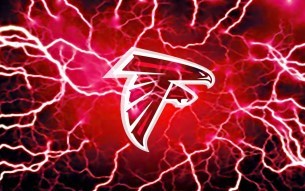Mayor Kasim Reed said the city would provide $200 million of construction costs through bonds backed by the city's hotel-motel tax. The Falcons franchise, owned by Home Depot co-founder Arthur Blank, would provide $800 million and be responsible for construction cost overruns.
The Falcons would pay for up to $50 million in infrastructure costs not included in the construction budget and help retire the last few years of debt on the Georgia Dome, which was publicly financed entirely using the hotel-motel tax.
Also, Blank's private foundation and the city each would spend $15 million on surrounding neighborhood development.
Blank - who has built his football franchise into a perennial playoff contender - still must negotiate a detailed lease and operating agreement with the Georgia World Congress Center. That's the state agency that owns the existing dome and would own the replacement. Reed also must get the blessing of the Atlanta City Council, though several members attended the announcement in the mayor's office, as did Georgia Gov. Nathan Deal.
Officials said the deal presumes the stadium would be built immediately south of the existing Georgia Dome, though that is contingent on securing adjacent property that is not yet publicly owned. A secondary site is available several blocks north of the current stadium.
The Georgia Dome would be demolished after the new stadium opens.
The Thursday announcement, which took on a celebratory tone at City Hall, comes after months of private negotiations - and several years of planning and studies - involving the governor's office, the World Congress Center Authority and the mayor's office, among others.
Reed called the arrangement "a great public-private partnership" that will benefit the city and the state.
City Council President Ceasar C. Mitchell said he was encouraged by the mayor's announcement, and he promised public hearings in the near future.
Deal praised the agreement, as well. At one time, the governor was the focal point of negotiations, when Blank sought $300 million in state debt to $700 million from him. Deal never publicly endorsed or rejected that split, but it became clear that the General Assembly was unwilling to raise the state's debt limit to accommodate the bond sale.
So now the city is left to sell the bonds using the tourism tax - a move authorized by the legislature - to pay back investors.
Blank called it "a win-win" and promised that the new stadium will help the city continue to compete for all major events, including the Super Bowl. "That's the only secret ballot in the NFL," he said. "We'll have to earn it. But this public support is an important piece."
Though the terms of an operating agreement are not final, Blank told The Associated Press that he doesn't expect fundamental changes to an outline released late last year.
That document from the World Congress Center and the team said the Falcons would lease the stadium for 30 years, paying the state $2.5 million annually in rent.
Blank would cover most operations, but he'd also reap revenue from seat licenses, premium seats and concessions and could negotiate for corporate naming rights. And he'd be a player in making "citywide bids," like those for Super Bowls and college football's new championship game.
The Congress Center would retain control over so-called legacy events that Dome already under existing contracts or through regular agreements. That includes the SEC Championship football game, Chick-fil-A's college football regular season and postseason games, NCAA basketball tournament rounds and Georgia high school football championships, among others.
It is not clear how much that changes the existing revenue flow at the Dome.
Frank Poe, executive director of the World Congress Center, said he was not aware of the financing agreement between Reed and Blank until "the last 24 hours." He said his agency would now re-engage to hammer out a binding contract with Blank.
World Congress Center officials have said over the course of negotiations that they didn't necessarily need a new venue, but that Blank pushed the issue because he wanted an open-air stadium. They said the fear was not that Blank would leave Atlanta but that he'd build his own stadium, taking the state's anchor client and becoming a competitor for other events.
They also said the public investment is less than what would have to be spent on Georgia Dome upgrades in the next few decades. So, they reason, the public is basically financing the cost of the retractable roof to keep all sides happy.
In a nod to criticism over public financing of stadiums for privately owned sports franchises, he argued that the terms are more favorable to the public "than any other stadium deal in the last 10 years."
The annual debt payments will be $12 million to $13 million at current market conditions, he said. The lowest annual total from the hotel-motel tax in the last decade, he said, is $15 million.
The mayor, a former legislator, said the "political reality" is that lawmakers have earmarked the tax for a stadium and would not agree to direct it anywhere else. "It sounds great to say we could spend the money or schools or on roads," he said, "but that's just not the case."
Blank's commitment to infrastructure, meanwhile, is considerably less than Reed's previous estimates of those improvements, which he's tagged at as much as $200 million. The mayor said Thursday he believes the Falcons' $50 million will be sufficient.

http://accesswdun.com/article/2013/3/259082
